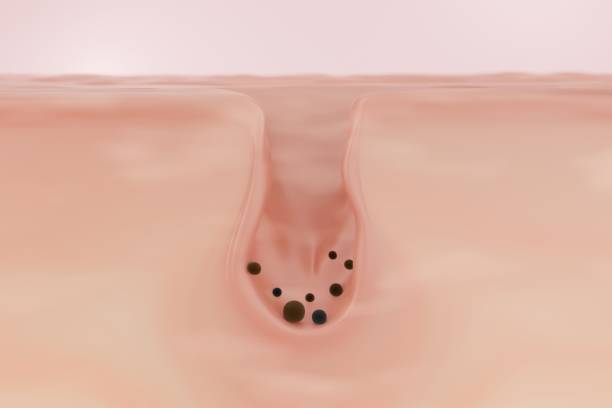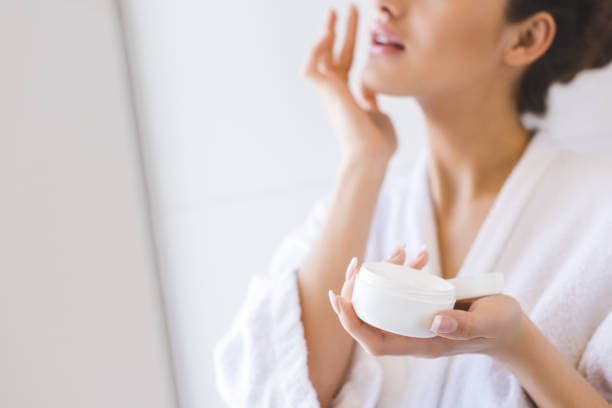These Could Be Blocking Your Pores: Let’s Discuss Pore Clogging Ingredients

Many individuals invest significant time and resources into lengthy skincare routines intended to improve things like skin appearance and texture. It can be really frustrating to realize that the products they have bought and applied could be blocking their pores and contributing to acne breakouts. Unfortunately, this can be the case with comedogenic (pore-clogging) skincare products. That’s why it’s important to understand which ingredients are more likely to clog pores, and how to adjust your skincare routine accordingly.
So, what really causes our pores to clog up? It can actually be caused by a combination of things. If your body naturally produces too much oil, or sebum, it can prove too much for your pores to clear properly. This can be compounded by dead skin cells or a comedogenic product—often a thick or buttery cream that blocks the appropriate release of natural oils from your pores. You can think of your pores as a bustling highway. If there’s a disruption, or obstruction, everything grinds to a halt. And the incoming cars continue to build up, worsening the situation. This is similar to what happens when you have clogged pores.
On the plus side, there are so many resources to guide you through process of weeding out comedogenic ingredients and products. You don’t even have to scroll through a long list of pore-clogging ingredients anymore—several sites nowadays contain a “checker.” All you need to do is type in the ingredient (and sometimes the brand/product names), and voila! Their classification will pop right up for you.
Of course, it can be handy to know the most common pore-clogging ingredients. Especially if you’re prone to acne or have sensitive skin, it’s not a bad idea to check each potential product for these ingredients.
WHAT ARE PORE-CLOGGING INGREDIENTS?
One of the pore-clogging ingredients is known to most as lanolin. This ingredient is, thankfully, pretty easy to rule out if you stick to vegan skincare. Lanolin come from sheep. Lanolin has its share of benefits, but it can also clog up your pores.
Akin to lanolin, silicone creates a shield on the skin to protect your skin from pollutants. However, this shield blocks out the bad while simultaneously keeping in any bad that was already on your skin.
Certain medications can actually have an effect on your sebaceous glands, leading to clogged pores. And while we know oily skin can be a culprit, did you know that dry skin could also be the cause? Despite being polar opposites, these two can both clog your pores. When your skin is dry, you can experience a higher-than-average number of dead skin cells stopping up your pores. And of course, as you probably guessed, hormones are another possible culprit. We actually have an entire article dedicated to the question of how to balance hormones.
There are some oils capable of clogging your pores. Some popular oils include the palm and coconut varieties. Coconut oil can also keep unwanted pore-clogging debris stuck to your skin. This barrier, retaining everything your body should be shedding, exacerbates the problem. That’s why coconut oil is better used in hair care formulas and hair products. It is a good idea to try this pore-clogging checker to understand which products and ingredients may clog your pores.
CAN NATURAL INGREDIENTS BE PORE-CLOGGING?
Most of them are. It is absolutely possible for all-natural skincare products to be noncomedogenic, like Plant Mother’s skincare line. The Plant Mother’s Vitamin C serum and retinol serum pass the pore-clogging checker with flying colors. You won’t find any comedogenic animal-derived ingredients like lanolin in any of Plant Mother’s products. This is because these serums are loaded with rejuvenating and nourishing ingredients like the Kakadu plum and effective all-natural plants like Bakuchiol.
Additionally, all of Plant Mother’s products are cruelty-free. To better understand what that means, check out our article on why cruelty-free retinol matters. It explains the term, how to know if a brand is truly cruelty-free, and what it means if a company is not cruelty-free. To explain it briefly, when we say Plant Mother’s products are cruelty-free, we mean that the company uses zero animal byproducts or animal-derived ingredients, and never tests on animals (or allow other businesses to test for them). Because the world deserves ethical skincare, and you deserve to clear your skin without clouding your conscience.

HOW DO I UNCLOG MY PORES?
But what does it actually mean to have clogged pores? What does this cause? Well, if your body is unable to use your pores as they’re intended, it can react poorly. In the case of clogged pores, you might see cysts, blackheads, pimples, etc. If you’re experiencing breakouts, pore-clogging ingredients could very well be the reason.
One of the first steps is to avoid habits and factors that exacerbate the situation. For one, please don’t start rubbing your skin vigorously in an attempt to unclog your pores. This doesn’t help, and in fact actively works against you. You can, however, wash, rinse or cleanse your face to remove pollutants. Additionally, a natural exfoliator can reduce some of the pore-cloggers. No matter what you use, do not excessively rub at your skin!
Always be sure you’re washing your face with clean hands. This is a must—you don’t want to add more dirt and other pollutants into the mix. Outside of a skincare routine, leave your skin alone. Don’t pick at anything, don’t pop anything—a good practice is to not touch it as you go about your day.
For example, avoid applying thick moisturizers and makeup when you can. These can serve as more of a hindrance than a help if you’re experiencing clogged pores, because they’re too thick to allow your natural oils to surface as they should. Also, never go to sleep with your makeup on – no matter how tired you are!
Stress Can Affect Your Skin TOO
Stress is another factor, so try to destress if you’ve noticed stress building up in your life. Be sure to take some time for self-care each day. Spend some portion of your day (however small) doing things for you. Exercise can be a helpful stress-reliever. And if you’re struggling, please reach out for support. Everyone deserves support, despite what society may have conditioned you to believe. True strength stems from the acknowledgment that relying on one another at times is human. It may be a good idea to see a mental health professional who can help you understand why you might be experiencing this stress and identify ways to cope or remove those stressors from your life.
Certain face masks with ingredients like charcoal can help with oily skin and clogged pores. But topical retinoids and vegan retinols are among the best at resolving clogged pores. Skincare products like salicylic acid and retinol can be extremely effective at combatting clogged pores.
Can FOOD Affect Your Skin
You may decide to reexamine your eating and behavioral habits that could be exacerbating the situation, as well. There is speculation and some research that suggests a correlation between certain foods and acne. Nothing is definitive, however, and scientists are still unsure about the relationship between acne and these foods. The foods that may be linked to acne include (but are not limited to) chocolate, dairy (i.e., milk products), fast food, and refined carbs.
The good news is that other foods have been shown to possibly improve acne! If you decide to change your eating habits in an attempt to improve your acne, you might look into green tea and a diet consisting of Mediterranean foods. Green tea can help decrease how much oil your glands are making. A diet of Mediterranean foods is quite acne-friendly—less saturated fats, little dairy, and high in vegetables and fruits.

WHAT AREN’T PORE-CLOGGING INGREDIENTS?
This should be an easy question, but some ingredients have an extremely mixed reaction online. One source claimed that shea butter is a noncomedogenic alternative to ingredients like cocoa butter, while another alleged that shea butter is indeed comedogenic. Some sources even suggest a ranking of sorts to define just how comedogenic each ingredient is, explaining that ingredients exist on a spectrum rather than a simple distinction of comedogenic or noncomedogenic.
One piece of advice we can offer is to use one of the pore-clogging ingredient “checkers” available online. A dermatologist or a holistic medicine practitioner can provide some of the best advice as a medical professional. So, if you have frequent breakouts, especially cystic acne, it might be a good idea to book an appointment with your provider. Cystic acne is a type of acne that can be caused be clogged pores, and it is capable of causing acne scarring.
Final Thoughts
Pore-clogging ingredients are a more complicated topic to cover than one might assume. But the right combination of ingredients for you is out there. It just takes some trial and error at times. And if you would like to try out Plant Mother’s noncomedogenic Retinol and Vitamin C Serums, you wouldn’t regret it! If you enjoyed this article, try our post about how to get clear skin for even more skincare advice and tips.
MEDICAL DISCLAIMER
This content is for informational and educational purposes only. It is not intended to provide medical advice or to take the place of such advice or treatment from a personal physician. All readers of this content are advised to consult their doctors or qualified health professionals regarding specific health questions. The publisher of this content does not take responsibility for possible health consequences of any person or persons reading or following the information in this educational content. All viewers of this content, especially those taking prescription or over-the-counter medications, should consult their physicians before beginning any nutrition, supplement, skincare product, or lifestyle program.
